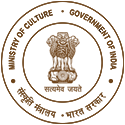The Samiti organized a seminar on “Empowerment of Tribal Women by improved livelihood options through value-addition of Mahuwa Flower” jointly with the Hodopathy Ethno (Medicine Doctor’s Association of India, Ranchi, Jharkhand) and Torang Trust at Gandhi Darshan, Rajghat on April 27, 2018. Almost 40 participants took part in the seminar.
The seminar was attended by Dr.Vedabhyas Kundu (Programme Officer, GSDS); Ms Geeta Shukla (Research Officer, GSDS), Dr. Vasavi Kiro (Ex-member, Jharkhand State Commission for Women), Dr. P. P.Hembrom (American Awardee, best ethnobotanists on indigenous system of medicine), Dr. Anil K. Goel (former Scientist) and the Adivasis, especially the collectors of Mahua flowers who are using Mahua for different purposes. Activists proactively working for awareness related to Mahua and even teachers from different schools of Jharkhand who are working on deepening the roots of cultural values of Mahua amongst students with the focus on teaching the student about the malpractices of Mahua took part.
The aim of the seminar was to discuss the ongoing malpractices related to Mahua and ways to evolve understanding about the advantages of using Mahua as medicine and other products such as sweets, pickles, jelly, etc, which in turn, will empower the tribal communities.
Smt. Geeta Shukla speaking at the inauguration of the seminar introduced GSDS to the participants. While speaking in the seminar, she said that we have been living here in cities where we have forgotten the facilities nature has provided to us even at free of cost. She expressed her happiness that through the experience of experts and participants present here, the sessions will enable to enrich the knowledge related to herbs and others.
Further, Dr. Vasavi Kedo, welcomed all and outlined the aim and objectives of the seminar. She focused her discussion on the on-going problem related to the use of Mahua, where, presently the villagers, who collect the Mahuwa, sell the Mahuwa flowers to the traders and thus they produce alcohol from it, eventually causing domestic violence. She informed that there-there is also a huge rise in the number of death cases.
She further informed that Hodopathy and ethnomedicine and other benefits of each part of Mahua must reach the people. While referring to the Parliamentary Committee Report of 2016, she stressed over the increasing number of cases of severe acute malnutrition, anemia and Malaria in children belonging to the tribal community. Issue related to early mortality rates was also discussed by her.
Dr. P.P Hembrom shared his experiences that how he has spent his whole life while working with indigenous species. He apprised that Hodopathy, the unique traditional medicinal system belonging to Jharkhand’s Tribal community, can cure many diseases. He said that more importantly, natural herbs and their extracts, does not have any side-effect on the patient.
Dr. Anil K. Goel, who has been working as the mentor to the natives of Jharkhand regarding the use of Mahua said that we all know tribal communities possess a vast wealth of indigenous knowledge system. Indigenous people have functional knowledge which they have developed, preserved and maintained over many generations through continuous interactions, observations and experimentations with their surrounding environment. He termed this as ‘Natural Capitalism’ or ‘Green Economy’.
He further described about the significance of ethnomedicinal knowledge, as it serves as a powerful tool for bioprospecting of plant wealth and also for converting into value-added products ensuring health security to masses in a most sustainable manner. He said indigenous communities are responsible for the discovery of the wide range of health-giving herbal formulations, medicinal plants which can generate considerable economic value and affordable health.
The seminar concluded with a presentation, interactive session and experience sharing by Hodopathy practitioners such as Punia Xalxo, Samble Singh Munda, Clamensia Kjur, Elizabeth Jahanaara and Mansingh Munda.












